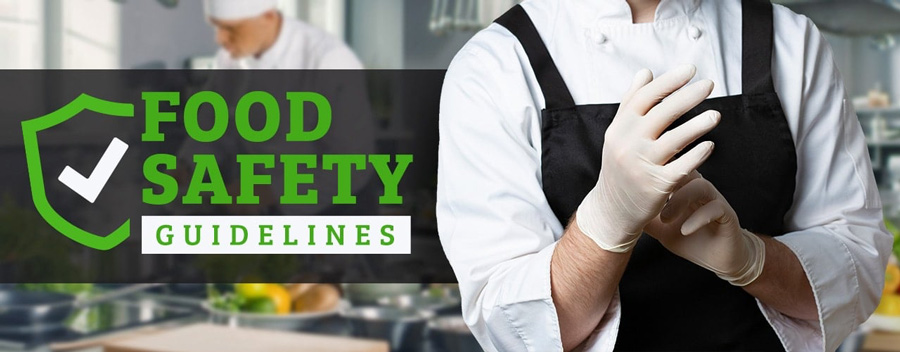Boost Food Safety in Australia with HACCP and DiamondCrete: Your Guide to a Hygienic Facility
Each year, an estimated 4.7 million Australians suffer from food poisoning, leading to 47,900 hospitalisations and 38 deaths. In the food and beverage industry, ensuring safety is critical to protecting your customers and your business. Discover how HACCP and DiamondCrete PU Cement can help you create a safer, more efficient food safety flooring, reducing risks and ensuring compliance with Australia’s strict food safety standards.(https://www.foodstandards.gov.au/business/food-safety-culture)
What is HACCP? Your Roadmap to Food Safety
Hazard Analysis and Critical Control Points (HACCP) is a systematic approach to keeping food safe. It helps you identify and control potential hazards—biological, chemical, or physical—throughout the food production process. By addressing risks early, HACCP ensures your products are safe for consumption, aligning with Food Standards Australia New Zealand (FSANZ) guidelines.
HACCP is built on seven key principles:
- Identify Risks: Spot hazards like bacteria or contamination that could compromise food safety.
- Find Critical Checkpoints: Pinpoint steps where you can stop or reduce hazards (think of these as safety “checkpoints”).
- Set Safety Limits: Define rules (e.g., temperature or pH levels) to keep checkpoints under control.
- Monitor Regularly: Check these checkpoints consistently to ensure compliance.
- Fix Issues Fast: Take immediate action if something goes wrong to prevent unsafe food reaching customers.
- Verify It Works: Regularly review your system to confirm it’s effective.
- Keep Records: Document everything to prove compliance with Australian regulations.
By implementing HACCP, you’ll meet FSANZ standards, reduce the risk of foodborne illness, and build trust with your customers.
Why DiamondCrete PU Cement is a Game-Changer
In Australia, poor hygiene practices contribute to many of the 4.7 million annual food poisoning cases. Cracked or porous floors can harbor bacteria, putting your facility at risk. DiamondCrete PU Cement is designed for the tough demands of Australian food and beverage facilities, offering unmatched benefits:
- Tough as Nails: DiamondCrete withstands heavy foot traffic, machinery, and aggressive cleaning, ensuring floors remain intact and safe.
- Chemical-Proof: Resistant to acids, alkalis, and harsh cleaning agents, it prevents contamination from degraded surfaces.
- Hygienic and Seamless: Its non-porous, seamless design stops dirt, bacteria, and mould, making cleaning easy and effective.
- Slip-Safe: Excellent slip resistance reduces workplace accidents, keeping your team safe.
- Handles Extreme Temperatures: From hot processing areas to cold storage, DiamondCrete maintains integrity.
- Saves Money Long-Term: Durable and low-maintenance, it reduces repair and replacement costs, saving your business money.
How HACCP and DiamondCrete Work Together
HACCP and DiamondCrete are a powerful duo for Australian food businesses. HACCP helps you identify and control risks, while DiamondCrete ensures your facility’s flooring supports a hygienic environment. For example, DiamondCrete’s seamless surface eliminates crevices where bacteria like Salmonella or Campylobacter—common causes of Australia’s 230,000 annual Campylobacter cases—can hide, making it easier to maintain Critical Control Points (CCPs). Together, they help you comply with FSANZ and reduce food safety risks. (https://www.health.qld.gov.au/clinical-practice/guidelines-procedures/diseases-infection/diseases/foodborne/outbreaks)
Take Action Today
With an average 80 food recalls annually in Australia, mostly due to undeclared allergens or contamination, robust food safety measures are essential. DiamondCrete PU Cement is trusted by industry leaders to meet Australia’s high standards. Contact our team for a free consultation tailored to your facility’s needs, or download our HACCP Compliance Checklist to start your food safety journey.
Your Commitment to a Safer Australia
Food safety is a shared responsibility in Australia, costing the economy $2.1 billion annually in food poisoning-related expenses. By combining HACCP’s proven framework with DiamondCrete PU Cement’s cutting-edge flooring, you’re building a facility that’s safe, efficient, and compliant with FSANZ standards. Take the first step today to protect your customers and your business.
✅ Let's Talk — DiamondGrind
100% free consultation — no commitment required.


